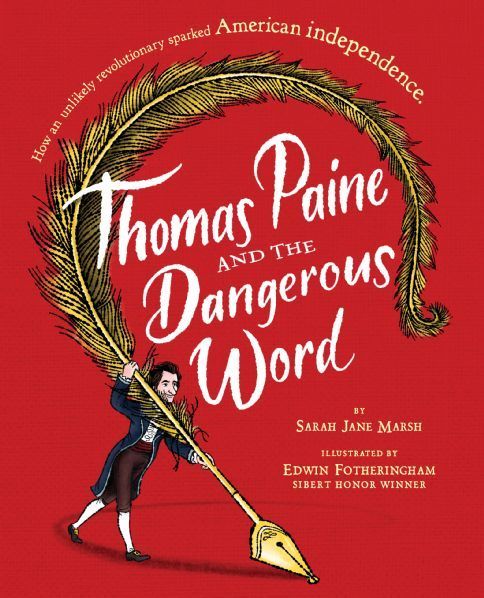A book to show kids why America is worth celebrating on the 4th of July

Say you're a parent who is having a hard time telling your child what the 4th of July is all about. How do you help a child feel proud of a country that's locking up other children? How do you show them what America stands for?
Seattle author Sarah Jane Marsh wrote a book for kids called Thomas Paine and the Dangerous Word. Capably illustrated by Edwin Frotheringham, it's a book that celebrates the best of America.
Obviously cresting the wave of Hamilton-mania, Marsh's book contextualizes Paine's pamphlets into the story of America's fight for liberty. She credits him for helping America find her voice, and she makes a compelling case that is easy enough for young readers to understand.
Perhaps the most admirable part of Thomas Paine is its celebration of clear and concise writing. "Pamphlets were usually written in fancy words the colonial elite," Marsh writes...
...Thomas used 'language as plain as the alphabet.' He wrote so common people could understand. Using wit, rage, and reason, the former General of the Headstrong Club attacked each of the deeply held beliefs that tied the colonists to Britain.
Marsh calls Paine's writing "literary dynamite," and she's not wrong. She lays out his influence on the revolutionaries and the impact of the revolution around the world by placing Paine's writing at the center of everything. I'm willing to bet that the book is a bit too Paine-centric for the tastes of some history teachers, but that's a common affliction with biographies, and there are no untruths here — just a bit of a prejudice in favor of the book's subject.
This is the kind of book that could inspire a child to write a pamphlet of her own. It explains the ideas that America was founded upon, and it correctly identifies those ideas and ideals as the foundation of the United States. It contextualizes for young audiences what Independence Day is all about.